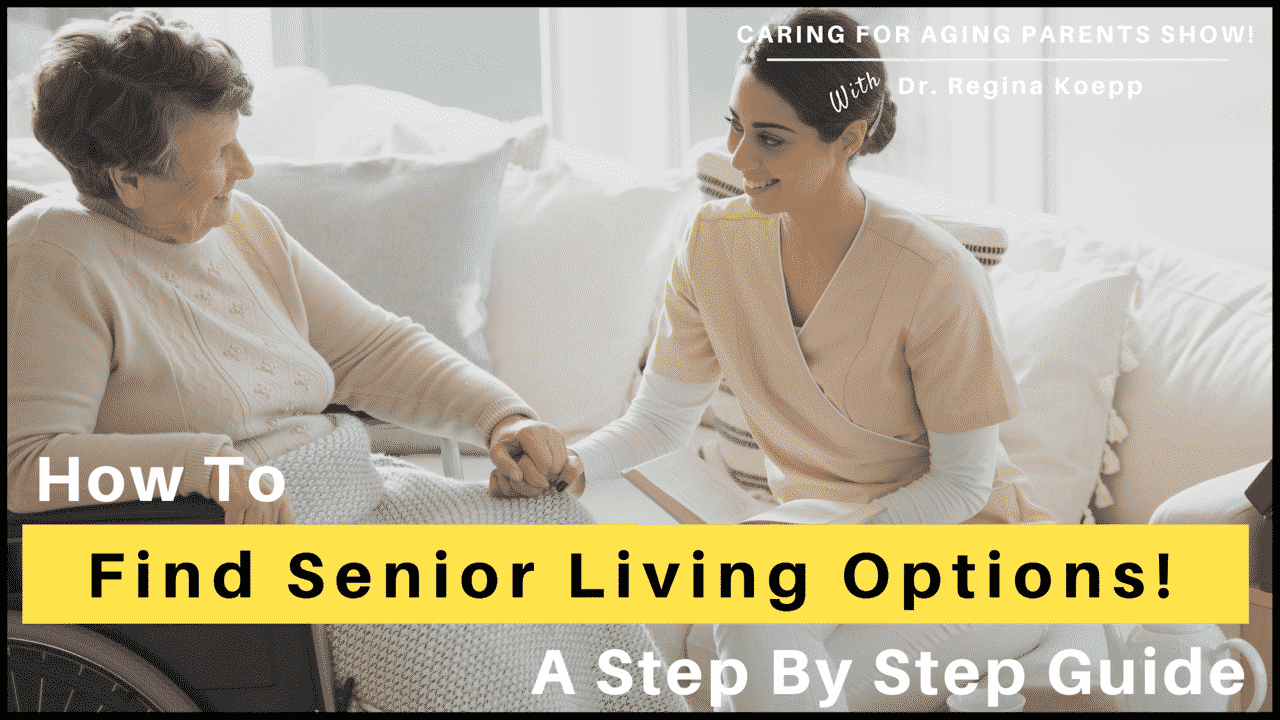How To Find Senior Living Options! A Step By Step Guide
1. Contact Your Local Area Agency on Aging And Ask For A List of Senior Living Options (Free)
- Area refers to a specific region or “area”.
- Agency refers to a non-profit.
- Aging refers to older adults.
In essence, these are your local non-profit agencies that support older adults.
AAA’s are great! They tend to be the go to resource for older adults and their families.
AAA’s know the local resources available for older adults, like Meals-on-Wheels, in-home assistance, senior living options, legal support services, and so much more! AAA’s coordinate and offer services, and sometimes case managers that help older adults and their families navigate resources.
2. Work With A Geriatric Care Manager/Aging Life Care Expert ($$$)
A geriatric care manager is typically a licensed nurse or social worker who specializes in older adults and is familiar with common needs and concerns older adults and their families are facing. They are also familiar with the community resources available to support you and your aging parents. They are specially trained to help find resources to make life for you and your aging parent easier. They also help you plan for what may be in store in the future.
Some people call Geriatric Care Managers a sort of “professional relative” who can help you and your family to identify needs and find ways to meet your needs.
They can be especially helpful if you live far away from your aging parents!
The name Geriatric Care Manager is in the process of changing to Aging Life Care Expert.
Geriatric care managers do a variety of things to help older adults and their families. As you set out to find a Geriatric Care Manager, you’ll want to ask questions to be clear about exactly what the Geriatric Care Manager you are interviewing does. Some of their services may include:
- Providing education about aging and older adult needs
- Discussion about difficult topics and complex issues
- Making home visits and suggesting services
- Assess in-home care needs to help your parents age in place safely
- Provide emotional support
- Making short- and long-term plans
- Helping you or your parents to select care staff
- Coordinating medical services
- Evaluating senior housing options
- Providing caregiver support and reassurance
- Dementia: Alzheimer’s Association
- Parkinson’s Disease: Parkinson’s Foundation
- Stroke: American Stroke Association
- Heart Disease: American Heart Association
- Diabetes: American Diabetes Association
- Cancer: American Cancer Society
- What are the primary services provided by your agency/business?
- How many Aging Life Care Professionals are in your agency/business?
- Is there a fee for the initial consultation and, if so, how much?
- What are your professional credentials?
- Are you licensed in your profession?
- How long have you been providing aging life care or care management services?
- Are you available for emergencies?
- Does your company also provide home care services?
- Are you able to help me find senior housing options?
- How will you communicate information with me?
- What are your fees? (These should be provided to the consumer/responsible party in writing prior to services starting.)
- Can you provide me with references?
You can learn more about working with Geriatric Care Managers/ Aging Life Care Experts here, or you can call the Aging Life Care Association directly at 1-520-881-8008.
3. Contact a Senior Housing Locator program like “A Place for Mom” (Free)
- Describe the individual you are looking for housing for (Name, Age, and Relationship).
- Where are you looking for senior Living or Care Options? (City, State)
- Then they’ll ask you for your email
- How do you plan to pay for the living or care expenses (Private funds, long-term care insurance, government assistance (medicaid, etc)?
- What prompted this search and/or what are your pressing concern?
This is a large agency so you’ll want to do your homework and see what other consumers have to say about working with them. Here’s a link to the Better Business Bureau to get you started.
Pros: You give them information, they’ll give you a list of housing options. They also have some helpful tools, worksheets, and blog posts on their website. Here are a couple of examples:
- Assisted Living Residence Checklist. Link here!
- Cost Calculator: Assisted Living vs. Home Care Cost Comparison. Link here!
Cons: They will only recommend organizations that they are in network with, meaning that if there is a perfect residence up the street who does not contract with A Place for Mom, this residence will not show up on the list A Place for Mom gives you. Another downside: you may receive many follow up phone calls from them.
I hope you find these methods for finding senior living communities helpful!
Download my free starter kit and you’ll get a list of the living environments

Dr. Regina Koepp



